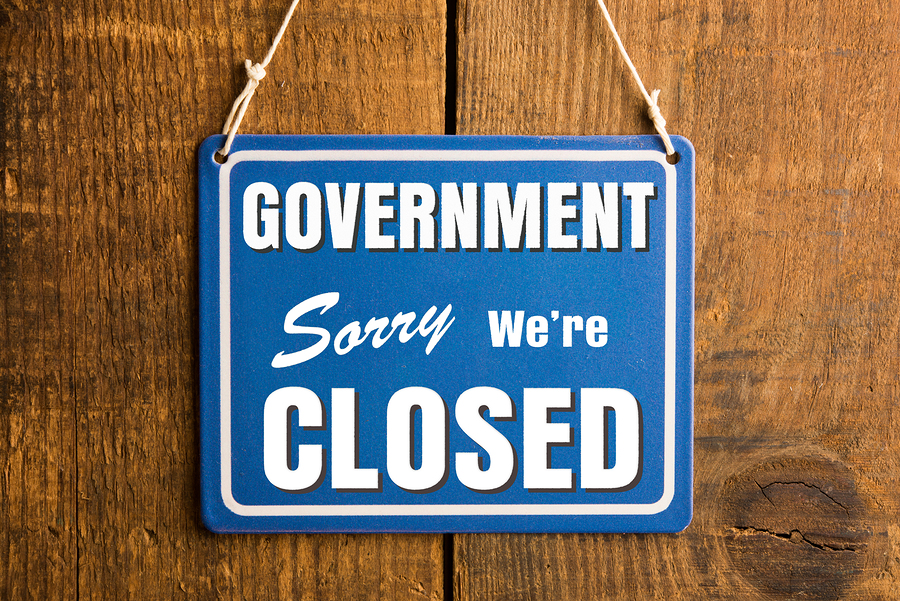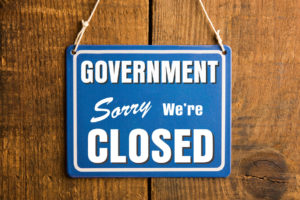
How Do Government Shutdowns Impact Private and Business Aviation?
 In 2013, the government shut down for 16 days due to budget issues. Because the aviation industry is heavily regulated, this shutdown affected many services and organizations, and those throughout the industry felt its lasting damage. Despite concerned members of several aviation groups urging politicians not to shut certain services down — most notably the FAA Aircraft Registry — the brief shutdown in January 2018 highlighted one obvious fact: The business aviation industry is vulnerable.
In 2013, the government shut down for 16 days due to budget issues. Because the aviation industry is heavily regulated, this shutdown affected many services and organizations, and those throughout the industry felt its lasting damage. Despite concerned members of several aviation groups urging politicians not to shut certain services down — most notably the FAA Aircraft Registry — the brief shutdown in January 2018 highlighted one obvious fact: The business aviation industry is vulnerable.
Government shutdowns
Back in 2013, the government failed to appropriate funding for fiscal year 2014 and closed down most routine government activities between Oct. 1 and 16. Hundreds of thousands of nonessential federal employees were furloughed, and a million more federal workers were required to work with no guaranteed payment date. The most recent shutdown went into effect Jan. 20 and ended Jan. 22 after Congress and President Donald Trump agreed to legislation to restore government funding for another three weeks, according to the NBAA article. On March 23, additional legislation put into effect an $18 billion FAA budget as part of the spending package that will keep the government functioning through September.
Shutdowns and business aviation
During the 2013 government shutdown, the U.S. Department of Transportation (DOT) closed the FAA Aircraft Registry and interrupted hundreds of aircraft deals, resulting in nearly $2 billion in losses. The furloughs did not affect those working in safety-centered positions, such as air traffic controllers and aviation inspectors. And although these essential positions remained filled in 2013, shutdowns also impact “the aircraft registry, aviation rulemaking, NextGen activities, airman certificate issuance and approvals of unmanned aircraft systems.”
Just how important is the aircraft registry? According to FAA data, at least 10,000 aircraft registrations expire each month. Not only can aircraft owners not renew their registrations during shutdowns but related activities such as aircraft purchase and sale maintenance transactions, ATC modernization efforts, aeromedical case reviews, as well as aircraft imports and exports also come to a halt, according to the AINonline article on vulnerability. And, while those involved in safety-sensitive positions were not affected in the 2018 shutdown — which was also the case in 2013 — the furlough still impacted “17,859 of the FAA’s 45,668 employees.”
Fighting back
Immediately after the Jan. 20 shutdown, the Aircraft Owners and Pilots Association (AOPA), along with five other general aviation groups, sent a letter to the DOT requesting it reopen the aircraft registry. The letter states, “We respectfully submit that DOT has authority under the Anti-deficiency Act,1 to staff the U.S. Registry as it is vital to protection of human life and property, and necessary for the U.S. to fulfill its ongoing international legal obligations under the Chicago Convention and the Convention on International Interests in Mobile Equipment (‘Cape Town Convention’) relating to the registration of aircraft.”
 On its webpage dedicated to the impact of government shutdowns on business aviation, the NBAA also weighed in: “The government shutdown has effectively brought to a halt the U.S. general aviation industry and is jeopardizing the future of thousands of U.S. small businesses.” It added that the U.S. is the world leader in general aviation and the shutdown would affect more than one million Americans working in companies that provide aircraft maintenance, sell fuel, construct hangars, and facilitate aircraft sales.
On its webpage dedicated to the impact of government shutdowns on business aviation, the NBAA also weighed in: “The government shutdown has effectively brought to a halt the U.S. general aviation industry and is jeopardizing the future of thousands of U.S. small businesses.” It added that the U.S. is the world leader in general aviation and the shutdown would affect more than one million Americans working in companies that provide aircraft maintenance, sell fuel, construct hangars, and facilitate aircraft sales.
For now, politicians have averted another government shutdown and its effects on business and private aviation. Unfortunately, the potential for a shutdown will likely remain for the foreseeable future. The NBAA is urging its members to act now to prevent future shutdowns from closing the FAA Aircraft Registry and related services. The organization is collecting reports of real-world scenarios that impacted industry insiders who hope these efforts and continued pressure from general aviation groups and individuals will help keep business aviation from being impacted during any future government shutdowns.
Need to sell your jet? We can assist with that, too. Contact the private aviation professionals online, by sales@L-Lint.com, or at +1 (305) 754-3313.